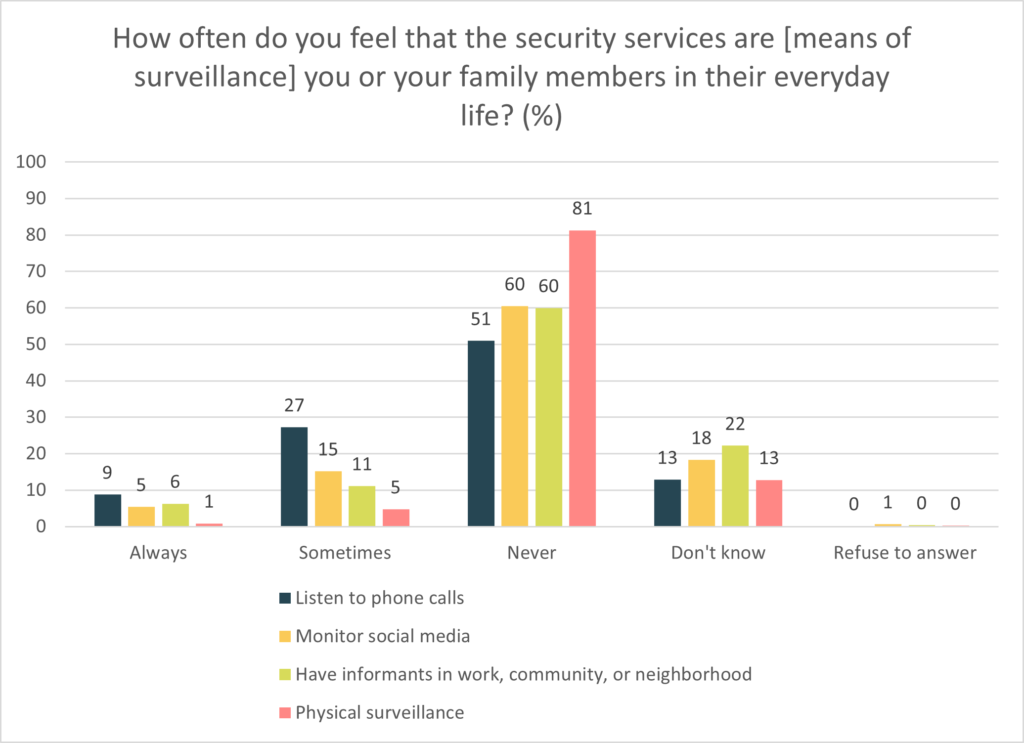მთავრობა
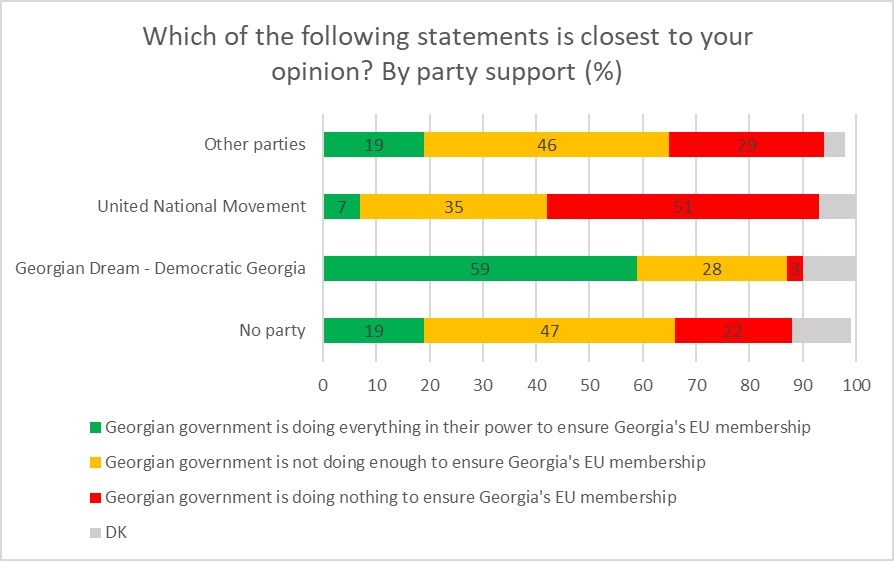
CRRC Georgia data suggests that while the majority of Georgians want to join the EU, they are largely split along partisan lines on whether their government is doing enough to secure the country’s candidate status.
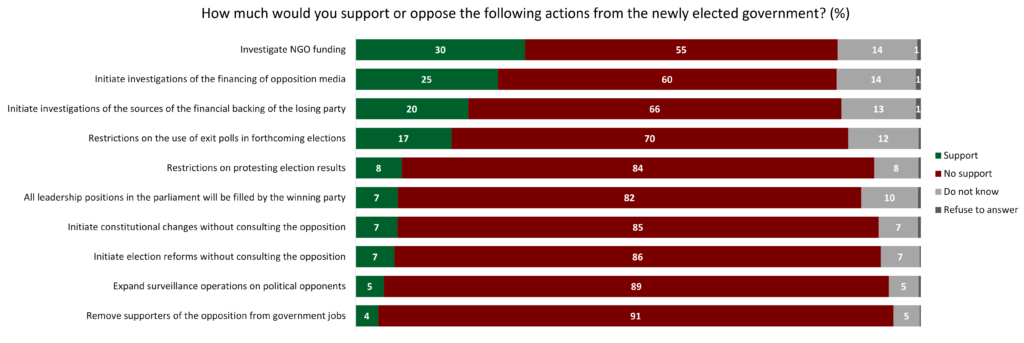
A CRRC Georgia survey found that people living in Tbilisi were more willing to accept democracy-eroding policies if they believed that their preferred party was in power.
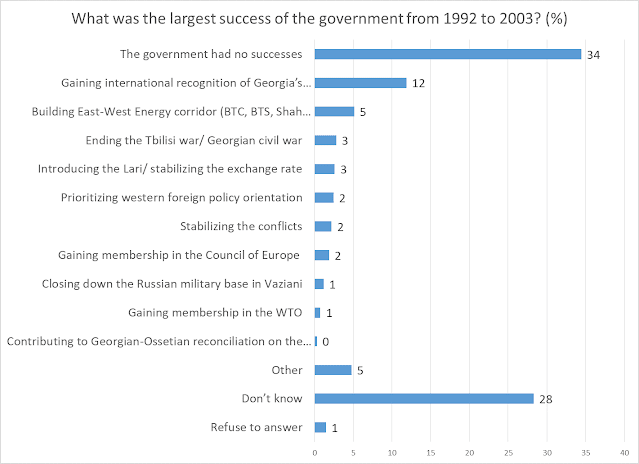
Each government of Georgia has had a wide range of successes; but how do the public see these successes from Shevardnadze’s time to the present?
When Eduard Shevardnadze’s government is mentioned in Georgia today, it tends to be connected…
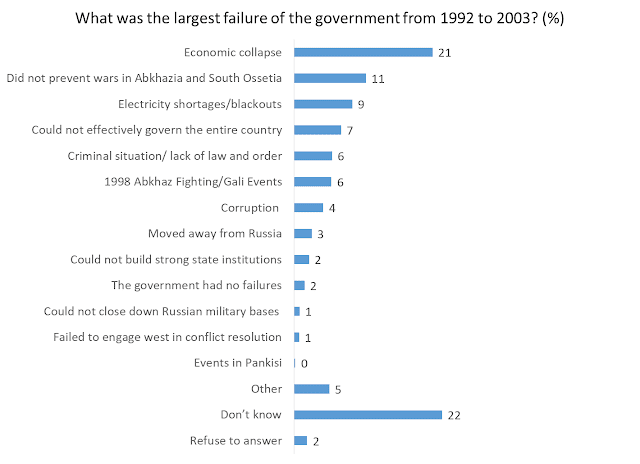
While each Georgian government has had a range of successes, as described in another post published today, they have each had their own spectacular failures.
From Shevardnadze’s failure to establish state power outside Tbilisi, to the human rights abuses under the…
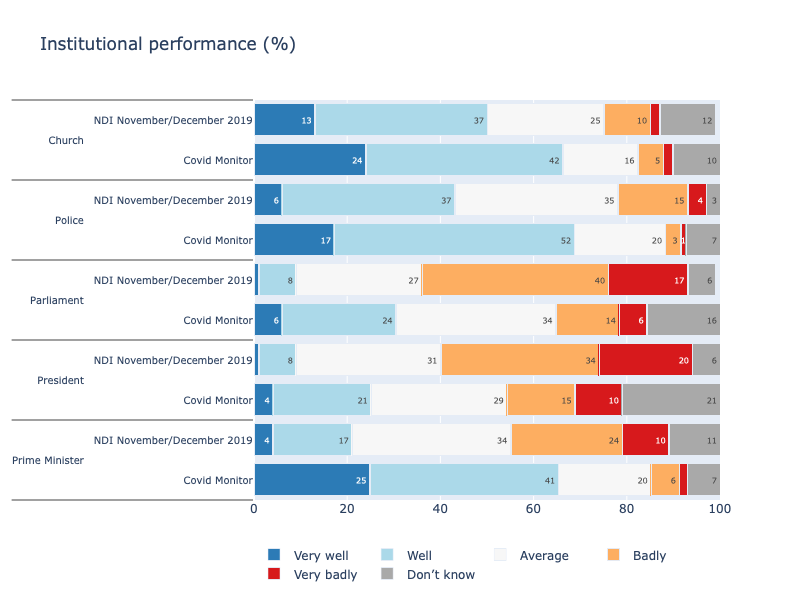
In times of crisis, support for governments often rises in what is known as a rallying around the flag effect. The COVID-19 crisis in Georgia has been no exception.
Data from around the world has shown rallying around the…
The outlook in Georgia continues to be increasingly pessimistic, with more people reporting that the country is heading in the wrong direction. Similarly, performance assessments of government institutions have been on the decline in recent years. As recent CRRC analyses have highlighted, party identification,…
Integration of ethnic minorities into Georgian society is a significant challenge. As a result of ethnic Armenians and Azerbaijanis’ linguistic separation from ethnic Georgian compatriots, some research suggests their ability to participate in government has been low. Indeed, programming aimed at minority integration in Georgia often focuses on…
12
